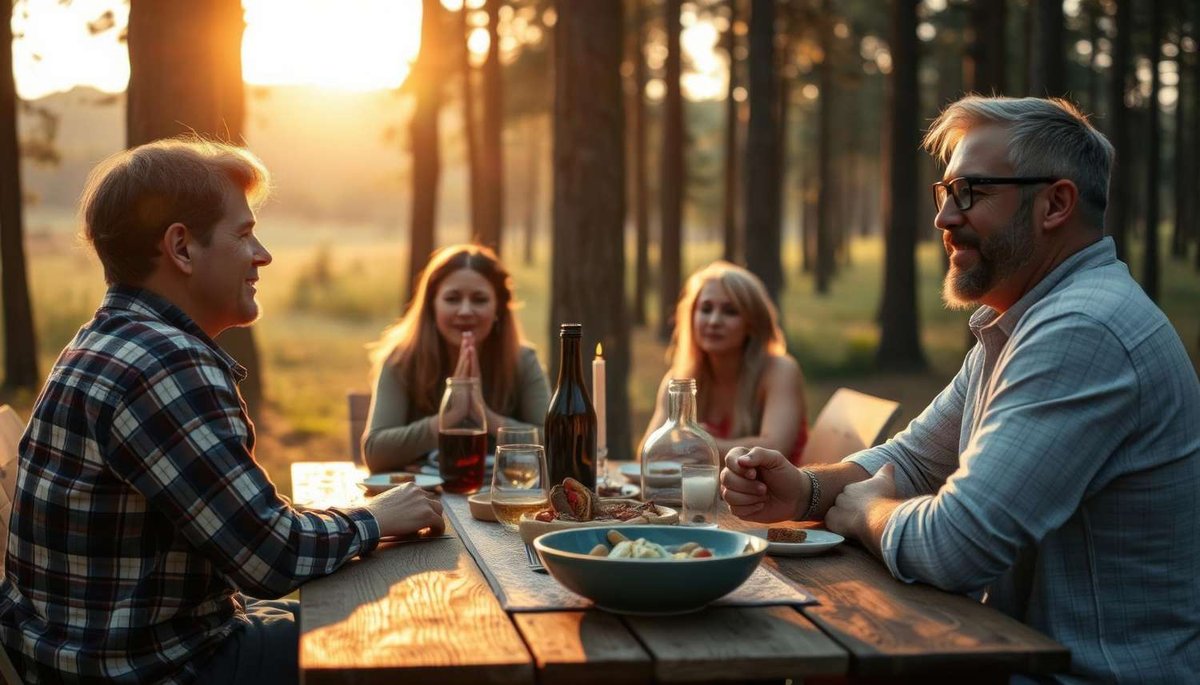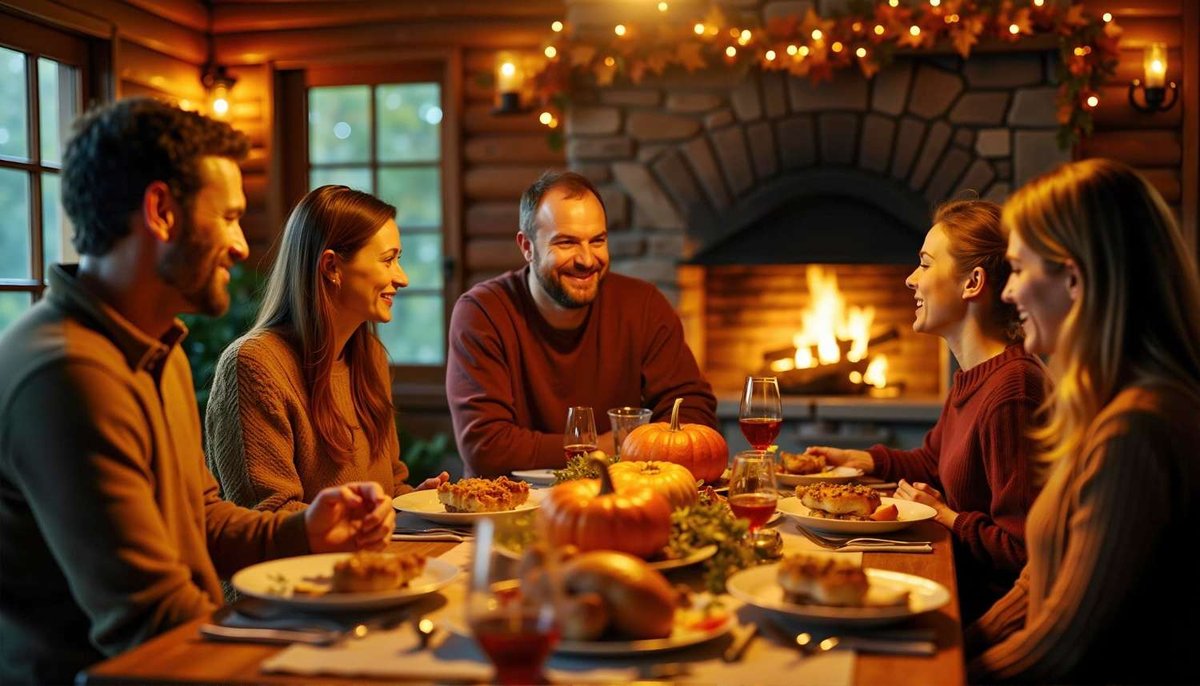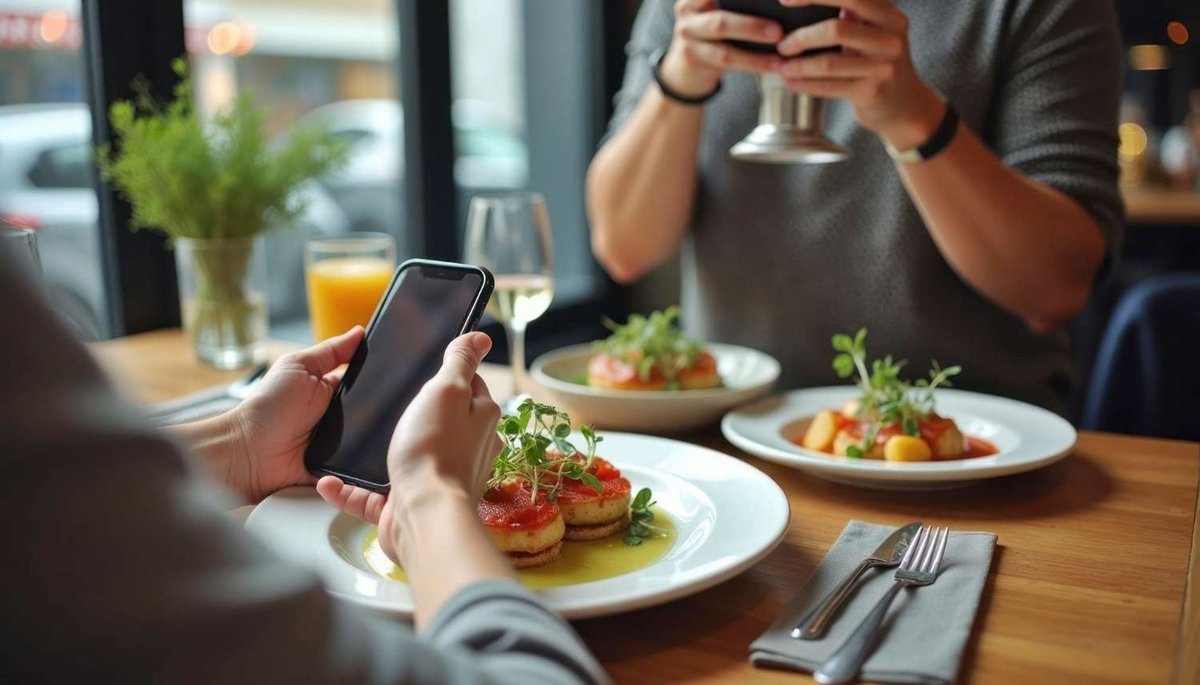🍽️ Table manners in Norway: how to behave during a meal and avoid awkward situations
Table manners reflect the cultural traditions and everyday habits of any country. In Norway, table manners are particularly important: restraint, neatness and respect for the hosts and other guests are valued here. By behaving correctly at the table, you will not only avoid awkward situations, but also show respect for local traditions.
In this article, we will tell you in detail how to behave during a meal in Norway, what rules and traditions exist, and give useful tips for travellers. You will find answers to 10 important questions asked by tourists, as well as links to the following blog sections: ‘Etiquette and Janteloven’, ‘Cuisine and gastronomy’, ‘Useful tips for travellers’.

❓10 FAQs about table manners in Norway
1. How do you start eating at the table in Norway?
In Norway, it is customary to start eating only after the dish has been served to all guests at the table and the hosts have said ‘Enjoy your meal’ (‘Vær så god!’).. It is considered rude to start eating before everyone else has been served. If you are invited to someone's home, be sure to wait until the hosts start eating first. Norwegians behave calmly, measuredly and unhurriedly at the table. Rushing during a meal and eating too quickly is considered bad manners. It is better to eat slowly, enjoying your meal and without showing excessive emotion. If you are dining in a restaurant, wait until the waiter wishes you bon appétit. For more information on gastronomic habits and traditions, see the section ‘Cuisine and gastronomy’.
2. How to use cutlery in Norway?
In Norway, cutlery is used in the traditional European way: the fork is held in the left hand and the knife in the right. Cutlery is held throughout the meal, even if you are eating simple dishes such as sandwiches or pizza.
In Norway, it is considered inappropriate to eat with your hands if cutlery is provided for the dish. The knife is not only used for cutting, but also to help put food on the fork. After the meal, it is customary to place the knife and fork parallel to each other on the plate, which is a signal that the meal is over. These simple rules will help you feel comfortable at the table in Norway. For more tips on table manners, see the section on ‘Etiquette and Janteloven’.
3. Is it acceptable to talk while eating in Norway?
Norwegians like to chat quietly at the table, but conversations are usually low-key and do not disturb other guests. Loud conversations or arguments at the table are considered inappropriate and may be taken negatively. Mealtimes are mainly for discussing neutral topics such as nature, the weather, culture and travel. Personal topics or questions about income, politics and religion are best avoided during meals, especially in unfamiliar company. If you are invited to someone's home, participate in the conversation, but be moderate and do not interrupt others. For more information about communication culture, see the section ‘Etiquette and Janteloven’.
4. What does the phrase ‘Takk for maten’ mean and when is it used?
The phrase ‘Takk for maten’ (‘Thank you for the meal’) is one of the important traditions of table manners in Norway. It expresses gratitude to the hosts or the cook after a meal.
Norwegians always say this phrase when they get up from the table or finish eating. If you are invited to someone's home, be sure to use this expression at the end of the meal — it will be taken as a sign of respect and good manners. In a restaurant, you can thank the waiter with the words ‘Takk, det var godt!’ (‘Thank you, it was delicious!’). For more information about the cultural characteristics of dining, see the section ‘Cuisine and gastronomy’.
5. Is it necessary to leave a tip in Norway?
Tipping is not mandatory in Norway, as the service charge is already included in the bill. However, it is customary to round up the bill if you are satisfied with the service. For example, if the bill is 185 kroner, you can leave 200. Tips are not usually left in bars, but in restaurants this gesture is appreciated. If you are invited to someone's home, there is no need to leave a tip — it would be inappropriate. For more information on tipping and gastronomic habits, see the section ‘Cuisine and gastronomy’.
6. How to behave at the table when visiting Norwegians?
If you are invited to someone's home, behave calmly and respectfully. Be sure to wait until everyone starts eating and follow the hosts' example. Try not to be noisy or rush, and avoid criticising the food or the hosts' home.
An invitation to the table is a sign of respect, so your task is to show your gratitude and appreciation. After the meal, don't forget to say ‘Takk for maten’ (‘Thank you for the meal’). For more information on guest etiquette, see the section on ‘Etiquette and Janteloven’.

7. Is it acceptable to ask for seconds during a meal in Norway?
In Norway, it is acceptable to ask for seconds if you really enjoyed the meal. This is seen as a compliment to the cook or hosts. However, try to do so in moderation and with tact. If you are full, it is better to politely decline seconds, as it is not customary to leave food on your plate.
For more information on gastronomic traditions, see the section ‘Cuisine and gastronomy’.
8. What should you do if you do not eat certain foods?
If you cannot eat a particular food for medical or personal reasons, let your hosts know in advance. In Norway, personal preferences are respected and an alternative will always be offered. For more information about dietary preferences, see the section on ‘Cuisine and gastronomy’.
9. Is it acceptable to use a mobile phone at the table in Norway?
Using a mobile phone at the table is considered bad manners. It is better to put your phone away until after the meal and focus on talking to people.

10. Is it customary to bring something with you when visiting someone in Norway?
Yes, a small gift (chocolate, flowers, wine) would be appropriate and well received.
By following these simple rules, you will easily blend into the atmosphere of a Norwegian feast and make a good impression on your hosts and other guests!





1 comment
Log in to leave a comment